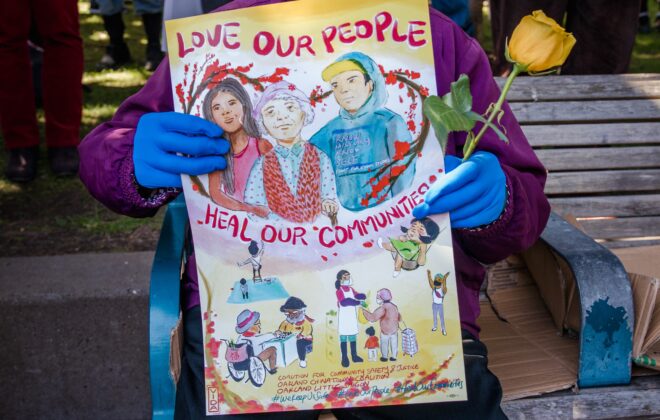
Celebration of Big Statewide Policy Changes on Policing
Since the slaying of George Floyd by the Minneapolis Police Department, ISAIAH has been hosting monthly policing and accountability meetings with ISAIAH leaders, organizational partners and statewide legislators. While cities have a role to play in police accountability, so does the state.
See the Minnesota Police Accountability Act.
This legislative session, sweeping legislation was passed in Minnesota to make the state safer for communities, including the Black, brown, indigenous and poor communities that have been rocked by harm from police departments. The last meeting we held, this Tuesday, was to unpack the impact of what passed and talk about how to get what didn’t.
We heard from the chair of the Public Safety & Criminal Justice Committee, Rep. Carlos Mariani; POCI Caucus and Health Policy Chair, Rep. Rena Moran and House Speaker Melissa Hortman.
As Rep. Mariani recounted, the bill passed was not a comprehensive bill but it was an important bill. He highlighted the reforms passed for the Police Officers Standards & Training Board, as well as changes to Use of Force, Chokehold Ban, and Arbitration Reform. He noted that achieving effective discipline of police is still a hot issue of contention in communities, as we too often see officers disciplined, reprimanded, and even dismissed — but then returned to duty after multiple infractions. One recent example is the Minneapolis officer who was fired for racist behavior (including, decorating a Christmas tree with litter) was returned to the job.
Rep. Rena Moran spoke about the fact that many jurisdictions around the country passed bills such as chokehold bans, and was proud that Minnesota passed 11 of the 18 provisions brought forward by the POCI caucus. She spoke of the struggle to pass even the “no-brainer” chokehold ban. It was one of the last provisions to reach agreement. Rep. Moran explained the important change to the “use of force” policy. The old law had language that justified use of police force because of an “apparent” threat – highly subjective language. The POCI Caucus pushed for replacing the word “apparent” with “imminent.” In the end, a deal was reached when neither word ended up in the bill, but the language defining “imminent” – based on policy language from other jurisdictions such as the FBI, Chicago and Seattle – was agreed to be included in the bill. Rep. Moran said she “could feel the arrogance in the room, some people call it ‘White privilege or white male privilege,’ trying to exert their power.”
Speaker Hortman shared the important context that none of this would have passed without all the work that Rep. Moran, Public Safety Commissioner John Harrington and Attorney General Keith Ellison had done over the past two years, touring the state and driving a process of stakeholder engagement on police reform. Speaker Hortman acknowledged that “we still have work to do, but in my opinion the press coverage undersold what the bill did. The use of force would have resulted in a conviction of officer Janez in the killing of Philando Castile.” Important progress!
All three legislative leaders acknowledged there is still a lot of work to do, and they remain committed to that work. Unfinished business includes restoration of voting rights to formerly incarcerated, cash bail reform, law enforcement oversight council and allowing for local community-led public safety, prosecutorial reform, police officer critical incident review, police immunity; requiring liability insurance and reforming the statute of limitations for police misconduct. We also touched on the need for prison reform, especially reducing incarceration for technical violations of probation/parole; and the automatic expungement of criminal records.
“Police accountability – as big and difficult as it is – is only one piece of Criminal Justice Reform,” said Rep. Mariani. “Look at our bill from 2018 you will see a blueprint…. Harmful policing is a symptom of a bad public safety system – from bail, to re-entry out of the prison system. We make it almost impossible for human beings to be human. There is a rich criminal justice reform agenda, and frankly there is bipartisan support for it as well. Think of police accountability as a bigger humanizing project. How do we create a redemptive society that allows us to be fully human?“
As Brian Fullman, lead organizer for ISAIAH’s Barbershop and Black Congregation Cooperative (BBCC), noted in closing, it was a powerful discussion with lots of good questions. We will continue to have these spaces to engage with legislators and build the power we need for change!
Categories
- Announcements (11)
- Childcare (8)
- Community Safety (10)
- Criminal Justice (18)
- Democracy (28)
- Economy & Jobs (27)
- Education (16)
- Environment (11)
- Faith (15)
- Health (22)
- Housing (30)
- Immigration (31)
- Islam (11)
- Newsletter (34)
- One Body (2)
- Other Issue Work (14)
- Public Safety (3)
- Report (7)
- Transit (19)
- Uncategorized (40)
- Working Families (18)



